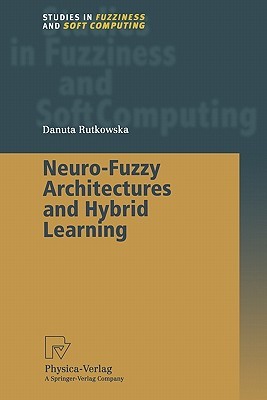
- We will send in 10–14 business days.
- Author: Danuta Rutkowska
- Publisher: Physica Verlag
- Year: 2010
- Pages: 288
- ISBN-10: 379082500X
- ISBN-13: 9783790825008
- Format: 15.6 x 23.4 x 1.6 cm, minkšti viršeliai
- Language: English
- SAVE -10% with code: EXTRA
Reviews
Description
The advent of the computer age has set in motion a profound shift in our perception of science -its structure, its aims and its evolution. Traditionally, the principal domains of science were, and are, considered to be mathe- matics, physics, chemistry, biology, astronomy and related disciplines. But today, and to an increasing extent, scientific progress is being driven by a quest for machine intelligence - for systems which possess a high MIQ (Machine IQ) and can perform a wide variety of physical and mental tasks with minimal human intervention. The role model for intelligent systems is the human mind. The influ- ence of the human mind as a role model is clearly visible in the methodolo- gies which have emerged, mainly during the past two decades, for the con- ception, design and utilization of intelligent systems. At the center of these methodologies are fuzzy logic (FL); neurocomputing (NC); evolutionary computing (EC); probabilistic computing (PC); chaotic computing (CC); and machine learning (ML). Collectively, these methodologies constitute what is called soft computing (SC). In this perspective, soft computing is basically a coalition of methodologies which collectively provide a body of concepts and techniques for automation of reasoning and decision-making in an environment of imprecision, uncertainty and partial truth.
EXTRA 10 % discount with code: EXTRA
The promotion ends in 22d.23:34:06
The discount code is valid when purchasing from 10 €. Discounts do not stack.
- Author: Danuta Rutkowska
- Publisher: Physica Verlag
- Year: 2010
- Pages: 288
- ISBN-10: 379082500X
- ISBN-13: 9783790825008
- Format: 15.6 x 23.4 x 1.6 cm, minkšti viršeliai
- Language: English English
The advent of the computer age has set in motion a profound shift in our perception of science -its structure, its aims and its evolution. Traditionally, the principal domains of science were, and are, considered to be mathe- matics, physics, chemistry, biology, astronomy and related disciplines. But today, and to an increasing extent, scientific progress is being driven by a quest for machine intelligence - for systems which possess a high MIQ (Machine IQ) and can perform a wide variety of physical and mental tasks with minimal human intervention. The role model for intelligent systems is the human mind. The influ- ence of the human mind as a role model is clearly visible in the methodolo- gies which have emerged, mainly during the past two decades, for the con- ception, design and utilization of intelligent systems. At the center of these methodologies are fuzzy logic (FL); neurocomputing (NC); evolutionary computing (EC); probabilistic computing (PC); chaotic computing (CC); and machine learning (ML). Collectively, these methodologies constitute what is called soft computing (SC). In this perspective, soft computing is basically a coalition of methodologies which collectively provide a body of concepts and techniques for automation of reasoning and decision-making in an environment of imprecision, uncertainty and partial truth.


Reviews